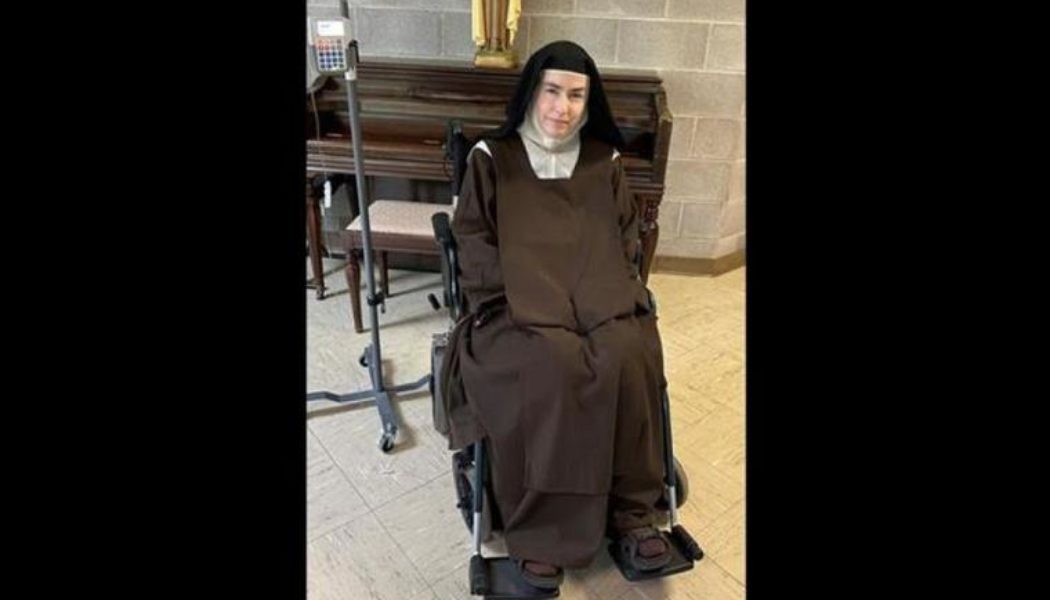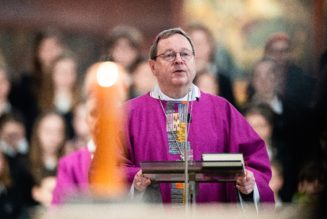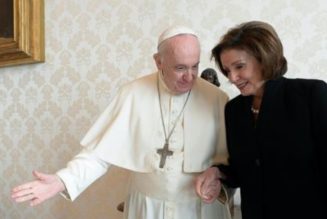
The curious case of the Carmelites in Texas brings attention to a culture shift in the Church. Ecclesiastical punishment has made a return. Indeed, one of the hallmarks of the Pope Francis pontificate is that punishment is back, sometimes fiercely so.
Bishop Michael Olson of Fort Worth was investigating the local Carmelite monastery. In response to his actions, the sisters sued in both canonical and civil court, seeking damages of $1 million in the latter filing. That itself was highly unusual, given that religious-liberty concerns usually militate against secular courts intervening in canonical matters, to say nothing of St. Paul’s view that Christians ought not have recourse to civil courts (1 Corinthians 6).
Bishop Olson did not take kindly to the civil lawsuit and told the nuns that until they dropped it, they would no longer have daily Mass and access to confession. In the fast-moving case, Rome gave Bishop Olson total control over the monastery, after which he summarily dismissed the superior for sexual immorality (which he announced publicly) and then restored daily Mass.
There is clearly a mess in Texas, but what is striking is how swift and severe were the punishments Bishop Olson delivered — and how little stir they caused. Forty years ago, when Rome moved modestly against a handful of dissident theologians, the howls of protest echoed for years, even decades. Then ecclesiastical punishments were rare and light; today, they are frequent and severe. The culture has shifted.
The principal cause is the sexual-abuse crisis. In his 2010 interview book, Light of the World, Pope Benedict XVI spoke about how the culture of punishment had simply disappeared in many places.
“The Archbishop of Dublin [Diarmuid Martin] told me something very interesting about that,” Benedict said. “He said that ecclesiastical penal law functioned until the late 1950s; admittedly it was not perfect — there is much to criticize about it — but nevertheless it was applied. After the mid-60s, however, it was simply not applied anymore.”
After the various waves of scandal, the law came back with a vengeance. The one-strike policy is now universal regarding abuse of minors, and standard practice is that initial punishments are administered instantly. Once an allegation is received, the priest is often out of ministry, his home and his clerical attire by sundown.
Such measures are widely supported as necessary to protect the vulnerable, punish offenders and restore ecclesial credibility. A massive change in ecclesial culture has been wrought by the crisis.
With the election of Pope Francis, the law took a central place in Rome’s pastoral approach. The Holy Father has issued dozens of legislative acts and completed the long process of completely revising Book VI of the Code of Canon Law, which deals with punishments.
Pope Francis continued the high-profile punishments that Pope Benedict administered to founders of new movements, most notably Father Marcial Maciel, the founder of the Legionaries of Christ, early in his pontificate.
A new culture has now emerged — a culture that makes imaginable a bishop cutting off Holy Communion from Carmelite nuns. Such a thing would have simply been unimaginable before.
In the United States, Archbishop Salvatore Cordileone of San Francisco prohibited Nancy Pelosi, then speaker of the House, from receiving Holy Communion in his archdiocese. Several other bishops supported him. That it happened now, though long debated, is part of the new culture of punishment.
Consider that four decades after dissenting theologian Father Hans Küng was moved from the faculty of Catholic theology to the department of ecumenical theology, all the while continuing to teach at the same German university, his case is still invoked as a case of Roman severity. Four months after Frank Pavone was dismissed from the priesthood altogether, everyone had moved on. In the new culture of punishment, such things are expected and are no longer remarkable.
In recent weeks, Pope Francis appointed new bishops for the Dioceses of Toowoomba, Australia, and Évreux, France. That was something of a coincidence, but a timely reminder of how unusual it used to be to remove a bishop from his diocese.
In Évreux, Pope St. John Paul II removed Bishop Jacques Gaillot in 1995. It was an extended process over many years, with various deputations being sent to Bishop Gaillot to persuade him to return to Catholic orthodoxy. When John Paul finally removed him, it was an ecclesial and political earthquake in France and beyond.
In Toowoomba, Bishop William Morris was another case of dissent. Pope Benedict XVI sent Archbishop Charles Chaput to conduct a visitation in 2007. It took another four years after that for Benedict to finally remove Bishop Morris in 2011.
No longer. Last year, Pope Francis “relieved” Bishop Daniel Fernández Torres from his Diocese of Arecibo in Puerto Rico. He was only 57. While no reason was given, it appeared that Bishop Fernández was at odds with his brother bishops over seminary formation and pandemic policy. For a bishop to be thrown out of office for such matters under John Paul or Benedict would have been impossible to imagine.
Remember Bishop Martin Holley of Memphis? Likely not. He was sent to Memphis in 2016, and soon after there were complaints of his management style. A visitation was sent to Memphis in 2018, and Pope Francis deposed him later that year.
When Bishop Gaillot died two months ago, his case was still well known in France, and his funeral was celebrated by the archbishop of Paris. Bishop Holley’s case is hardly remembered five years later.
Just days after Bishop Gaillot’s funeral, Pope Francis sacked French Archbishop Luc Ravel of Strasbourg. In France, there have been several bishops quickly removed for personal misconduct, though that was not the case with Archbishop Ravel, who was pushed out over pastoral (mis)governance.
Early on, in 2014, Pope Francis sacked Bishop Franz-Peter Tebartz-van Elst of Limburg, Germany, after a controversy over spending on his residence. Many others have followed.
Indeed, a bishop being forced out is no longer a major Catholic story, as it was in the days of Bishops Gaillot or Morris. It’s no longer an anomaly, but the new culture. A culture shaped by Francis, the pope of law and punishment.
In the 1960s, the Church had forgotten about both. Has the balance now been restored?









